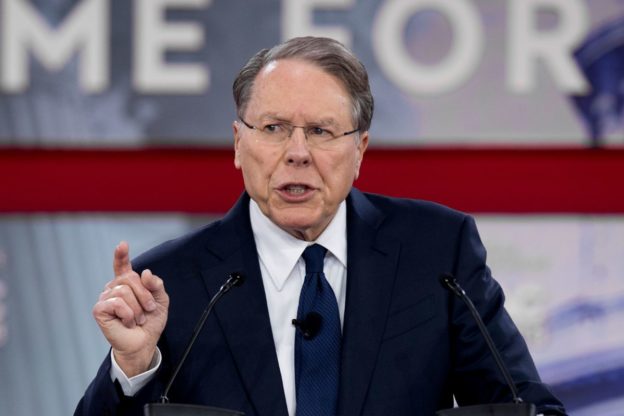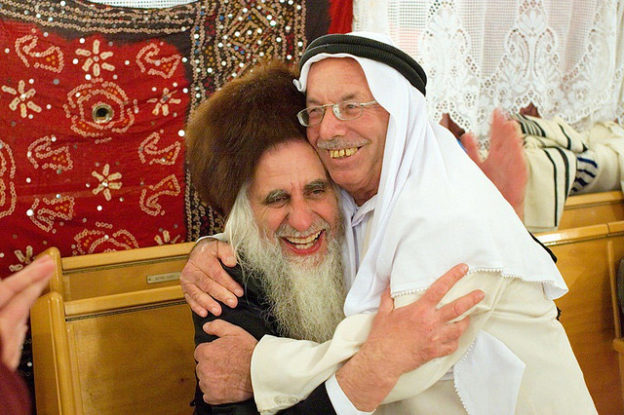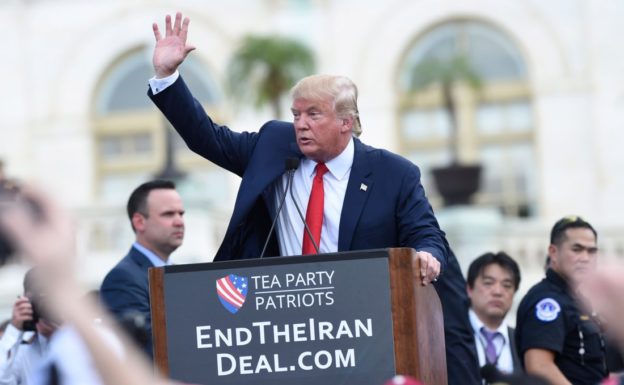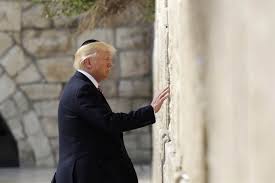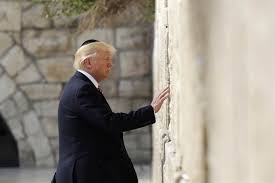Below is my original draft of a piece I wrote for Forward. The article as it appeared there, though, was substantially edited, and several sentences that I think are important were omitted. So I share the original here. The Forward piece can be read here.
Well, in case anyone for some reason may have been wondering, Peter Beinart, who recently wrote a piece titled “The Orthodox Should Know Better than to Embrace Hatred of Muslims,” doesn’t follow J.K Rowling on Twitter.
Because if the Forward senior columnist and former The New Republic editor did, he would have seen Harry Potter’s creator’s retweet last year of a haredi (or in the Forward’s pejorative preference, “ultra-Orthodox”) rabbi’s message.
The rabbi shared the fact that he had dedicated his presidential election vote to the American Muslim soldier Captain Humayun Khan – who was killed in combat and about whom his father Khizr spoke movingly at the Democratic National Convention. Then-candidate Donald Trump, of course, was then touting his “Muslim ban.”
The Hasidic rabbi, who serves as a media relations coordinator at the national Orthodox Jewish organization Agudath Israel of America (full disclosure: I work there too), shared a photo of himself holding his ballot, alongside a photo of Captain Khan and his gravestone. He wrote that he wanted to highlight how Captain Khan’s “devotion makes (religious) freedom possible.”
The tweet was liked almost 12,000 times and retweeted 5,496 times, including Ms. Rowling’s sharing of the photo and message with her 13 million followers. Not one of whom, apparently, is Mr. Beinart, who wrote recently here that “the inability to distinguish jihadist terrorism from Islam fuels American Jewish hostility toward American Muslims” and that such inability is “particularly true among the Orthodox.”
Mr. Beinart must have also missed the story of the haredi director of a Brooklyn soup kitchen who, after the election, rallied support within his community for Muslim Yemeni neighbors who were protesting the new president’s executive order banning immigration from seven Muslim-majority countries. The haredi also organized support for a beleaguered local Yemeni-owned bodega, complete with “Shalom/Salaam” posters.
Agudath Israel, moreover, issued a pro-immigration statement about the ban asserting that such a move is acceptable only if intended to prevent terrorists from entering the country, only “if tempered by true concern for innocent refugees” and only if “its focus is on places,… not on religious populations.”
Mr. Beinart could be forgiven for not knowing about the hassidic WhatsApp group that calls itself “Isaac and Yishmoel,” created to enable its members to defend unfairly maligned Muslims.
But some research on his part might have turned up the fact that Agudath Israel’s executive vice president chairs the Committee of New York City Religious and Independent School Officials, which includes representation from the Islamic School Association. And that he has worked with Islamic school representatives on a number of issues before the New York State Education Department. And that, on the national level, he works with Islamic school groups under the umbrella of the Council for Private Education.
Agudath Israel has also joined with Islamic groups in amicus briefs in religious liberty cases, and, along with the Orthodox Union, another major national group, has opposed “anti-sharia” laws.
Is there wariness about Muslims among many Orthodox Jews? Yes, as there is among many non-Orthodox ones, among many Episcopalians, Catholics and Hindus too. Is that fair to the vast majority of Muslim citizens, who have no evil designs? No. But, unfortunately, the proclaimed world-conquering designs of Islamists and the malevolent acts committed by extremists exist. The distrust that results is, unfortunately, the responsible Muslim’s unfair burden to bear.
But do Orthodox Jews hate Muslims or seek to harm them? Mr. Beinart should visit one of the Brooklyn neighborhoods where Orthodox Jews and Muslim immigrants live side by side, day by day without friction.
The Forward columnist compounds his slander of Orthodox Jews by engaging in some Orthophobia, in effect accusing haredim of preventing women from marrying, touting genocide and killing babies. Yes, you read right.
There isn’t space here to rebut such outlandishness. Suffice it to say that it is a high haredi ideal to find ways to compel a recalcitrant husband to agree to divorce his abandoned wife; that no people today can be identified with Amalek, and so the biblical injunction to destroy that evil nation cannot be applied; and that metzitza bipeh, the oral suction practiced by some haredim as part of the Jewish circumcision rite, has never been proven to be related to, much less the cause of, any infection in an infant, as three medical/statistics experts have affirmed (http://forward.com/opinion/letters/194118/no-conclusive-evidence-on-circumcision-rite-and-he/) in these very pages.
The Orthodox community’s final crime, in the Beinart courtroom, is having voted in large numbers, and in contrast to the larger Jewish community, for the man currently occupying the White House. Judge Beinart chooses to interpret that fact as the result of Orthodox anti-Muslim sentiment.
Might it be, though, that many haredim simply recognize that judicial appointments comprise one of the most influential powers any president has? And felt that Mr. Trump’s likely choices would prove more sensitive to our community’s concerns about societal issues and the potential erosion of religious rights in America?
We must plead guilty – forgive us – to the charges of being social conservatives and religious rights activists. But not to Mr. Beinart’s ugly and incendiary charge.
